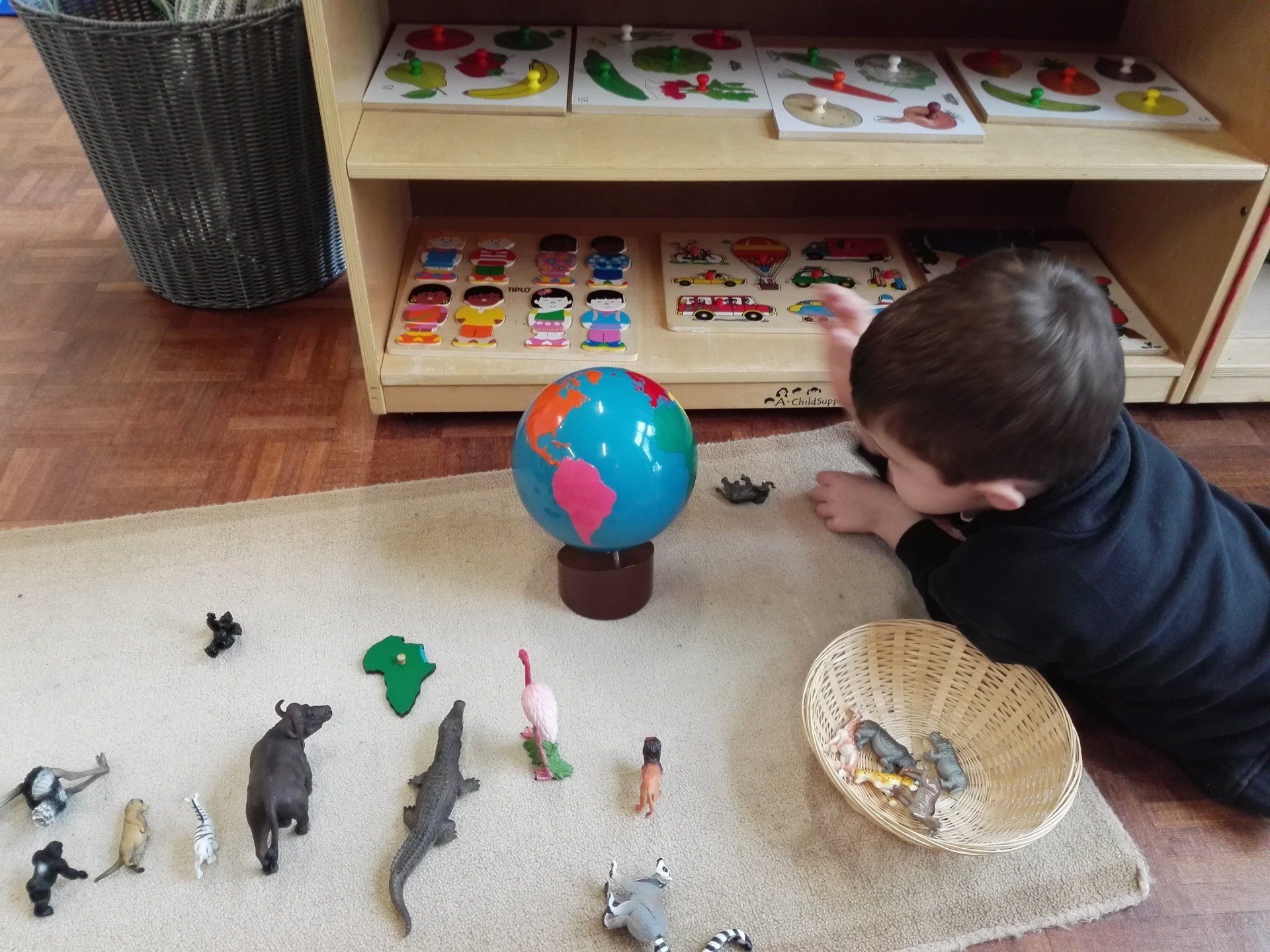The Montessori curriculum more than covers the Early Learning Goals which the Government has proposed that children should attain by the time they are five. We provide a prepared environment that encourages children to explore and discover the world that surrounds them. It allows children to learn at their own pace, choose activities of their own choice, and interact with others in a natural, respectful, and peaceful environment. The prepared environment consists of 5 distinct areas.
Activities of Everyday Living (AEL)
When children enter the pre-school, they spend considerable time working in the AEL area of the classroom. AEL prepare the children to be independent and confident inside the classroom. These activities include caring for self, caring for the environment, grace and courtesy and control of movement. Children transfer these skills to other areas in the classroom, e.g., pouring liquid from jugs helps them to pour their own drink in the snacks area. Similarly activities like cutting, spooning, polishing, using tongs and tweezers, allow children to operate independently, which in turn boosts their confidence and self-esteem.

Sensorial

Sensorial education is the key to the world. The sensorial area seeks to develop the senses, for it is through the senses of touch, taste smell, hearing and sight that the young child learns. Sensorial materials are self correcting and are designed to refine all the senses and prepare them for formal learning in future. This is the area where a child learns important concepts such as big and little, long and short, heavy and light, rough and smooth, colour, size, shape etc.
Language
Before introducing children to any formal language activities, children are given opportunities to play various games (I spy games, Memory games, Listening games etc.), listen to different stories, rhymes, songs and musical instruments. Montessori language materials are phonic based and children learn letter sounds which help them to blend these sounds to make words easily. Eventually they progress to small phonic reading books.

Mathematics

Children in a Montessori environment become conscious of shape, space, measure and counting through cooking activities, number games, rhymes and sensorial materials. They are introduced to formal mathematics when they are ready, through concrete materials which help them to abstract the concepts easily and effortlessly. The Montessori mathematics materials build on each other in increasing complexity so that the child using them will experience the thrill of discovery as a part of his/ her natural progression.
Cultural
The Cultural area provides the child with an opportunity to explore the larger world. The child learns about his/ her immediate environment, people, animals, plants, rocks etc. Cultural activities cultivate the child's fascination with the universe and help them develop a lifelong interest in observing nature and discovering more about the world in which we live.

Our curriculum also includes:
Cooking
- This takes place on a regular basis once a week. As well as being an important life skill, cookery helps with fine motor co-ordination, mathematical understanding etc.
Music & Dance
– Music lessons are held once a week. Music and dance sessions are held regularly.
Art/Craft and Creative Activities
– The setting provides opportunities to the children to represent their imaginations and thoughts through work with paint, clay etc. and do junk modelling.
Yoga- Yoga sessions are done regularly. It helps the children in balance, correct posture, concentration and coordination.
Spanish- Spanish lessons are held once a week.

